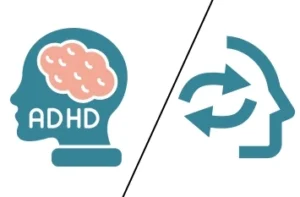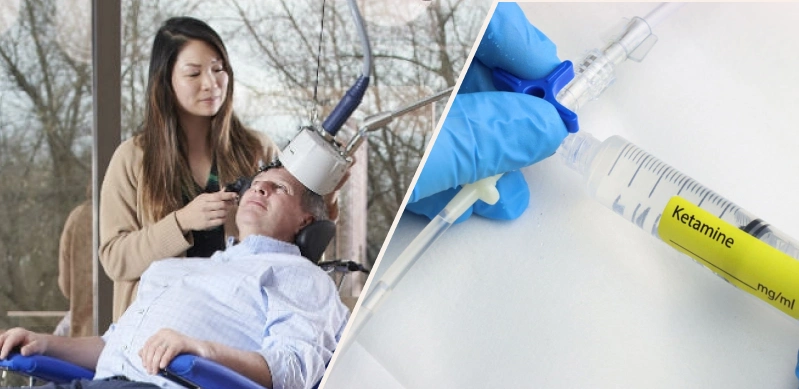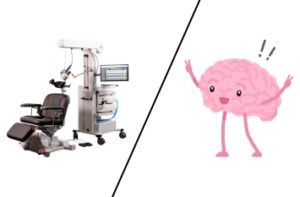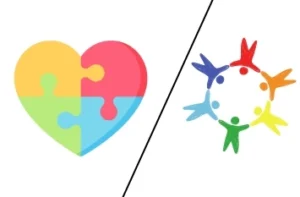
How to Recognize the Early Signs of ADHD in Adults and Children
How to Recognize the Early Signs of ADHD in Adults and Children ADHD (Attention-Deficit/Hyperactivity Disorder) is often misunderstood, with many assuming it’s something that only

Depression is a complex mental disorder that involves imbalances in the brain’s chemistry and neural pathways—traditional antidepressant medications work by targeting specific chemicals in the brain, such as serotonin and dopamine. TMS, on the other hand, targets the underlying cause of depression by directly stimulating nerve cells in key areas of the brain.
Following are the reasons why TMS may be a beneficial treatment option for individuals with depression:
Non-invasive and non-systemic: Unlike antidepressant medications, which can have numerous side effects, TMS is non-invasive and does not require any medication. This makes it a safe and effective alternative for those who cannot tolerate or do not respond well to traditional treatments.
Targeted treatment: TMS targets specific areas of the brain, giving healthcare providers more control over the treatment and potentially reducing side effects.
Higher success rate: Studies have shown that TMS has a higher success rate compared to traditional antidepressant medications. It is particularly beneficial for individuals with treatment-resistant depression who have not responded well to other treatments.
Ketamine is a dissociative anesthetic that has been used for decades in the medical field. In recent years, it has gained attention as a potential treatment option for depression and other mood disorders.
Ketamine works by blocking certain receptors in the brain, resulting in the production of glutamate—a chemical that plays a crucial role in regulating emotions. By increasing glutamate levels, ketamine can help to alleviate symptoms of depression and improve mood.
Ketamine is usually administered intravenously, with patients lying down during the procedure. The effects of ketamine are felt almost immediately, making it an attractive treatment option for individuals with severe depression who need immediate relief.
Following are the reasons why ketamine may be a beneficial treatment option for individuals with depression:
Rapid results: Unlike traditional antidepressant medications, which can take weeks to show results, ketamine works almost immediately. Patients often feel a significant improvement in their symptoms within hours of the first infusion.
Alternative for treatment-resistant depression: Ketamine has been found to be effective in treating individuals with severe and treatment-resistant depression who have not responded well to other treatments.
Potential for long-lasting effects: Studies have shown that the benefits of ketamine can last beyond the initial treatment period. Some individuals may experience a reduction in depression symptoms for several weeks or even months after receiving ketamine therapy.
Transcranial Magnetic Stimulation (TMS) and Ketamine are two popular treatments used for various mental health conditions such as depression, anxiety, and PTSD. Both of them have shown promising results in helping individuals who have not responded well to standard treatment methods. However, there are significant differences between the two treatments that people should be aware of before undergoing any of them.
The following table highlights the key differences between TMS and Ketamine:
TMS | Ketamine |
A non-invasive procedure that uses magnetic fields to stimulate nerve cells in the brain. | Dissociative anesthetic works by blocking certain receptors in the brain. |
Requires multiple sessions over several weeks. | It is typically administered through a series of infusions over the course of several weeks. |
Targeted treatment that aims to reset neural pathways in specific areas of the brain. | Increases glutamate levels, which helps regulate emotions and improve mood. |
Has a higher success rate compared to traditional antidepressant medications. | Effective for individuals with severe and treatment-resistant depression. |
It can be used in conjunction with other treatments. | Typically used as a standalone treatment. |
It may cause mild side effects such as headaches and scalp discomfort. | It may cause dissociation, hallucinations, and increased heart rate. |
FDA-approved for treating depression and OCD. | Not FDA-approved for treating depression, but widely used off-label. |
It is true that both TMS and Ketamine have been shown to be effective in treating depression. However, it is essential to consult a healthcare professional before making any decision about which treatment may be suitable for an individual’s specific condition.
TMS and Ketamine are both innovative treatment options for individuals with depression who have not responded well to traditional methods. However, each treatment has its own set of benefits and drawbacks. It is crucial to consult a healthcare professional to determine which option may be more suitable based on an individual’s specific condition.
Individuals with milder forms of depression may benefit more from TMS, while those with severe and treatment-resistant depression may find relief through Ketamine therapy. It is also essential to consider any potential side effects of each treatment and discuss them with a healthcare professional before making a decision.
As with any medical treatment, there are potential side effects and safety concerns associated with both TMS and Ketamine. However, these side effects are generally mild and can be managed with proper medical care.
Some common side effects of TMS include headaches, scalp discomfort, and mild tingling sensations in the head. On the other hand, Ketamine may cause dissociation, hallucinations, and increased heart rate. These side effects are usually short-lived and can be managed with proper medical care.
It is also crucial to ensure that these treatments are administered by trained healthcare professionals in a safe and controlled environment. Patients should always discuss any concerns or questions about the treatment with their healthcare provider before undergoing TMS or Ketamine therapy.
Both TMS and Ketamine have shown promising results in treating depression and other mental health conditions. However, it is essential to understand the differences between the two treatments and consult a healthcare professional before making any decisions. While TMS is an FDA-approved treatment for depression and OCD, Ketamine is widely used off-label for treating severe and treatment-resistant depression.
Both treatments have their own set of benefits and potential side effects, and it is crucial to weigh them carefully before deciding on the best course of action. Ultimately, the goal is to find a treatment that can provide long-lasting relief from depression and improve overall quality of life.

How to Recognize the Early Signs of ADHD in Adults and Children ADHD (Attention-Deficit/Hyperactivity Disorder) is often misunderstood, with many assuming it’s something that only

Where to Get TMS Therapy in Frisco TX. What Sets Perfect Balance Psychiatric Services Apart If you’re living with depression that hasn’t improved with medication,

Autism Care Starts Here: Expert Support at Perfect Balance Psychiatric Services Autism Spectrum Disorder (ASD) isn’t just a diagnosis—it’s a unique way of experiencing the
